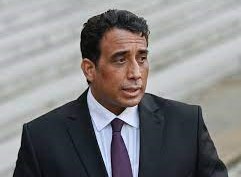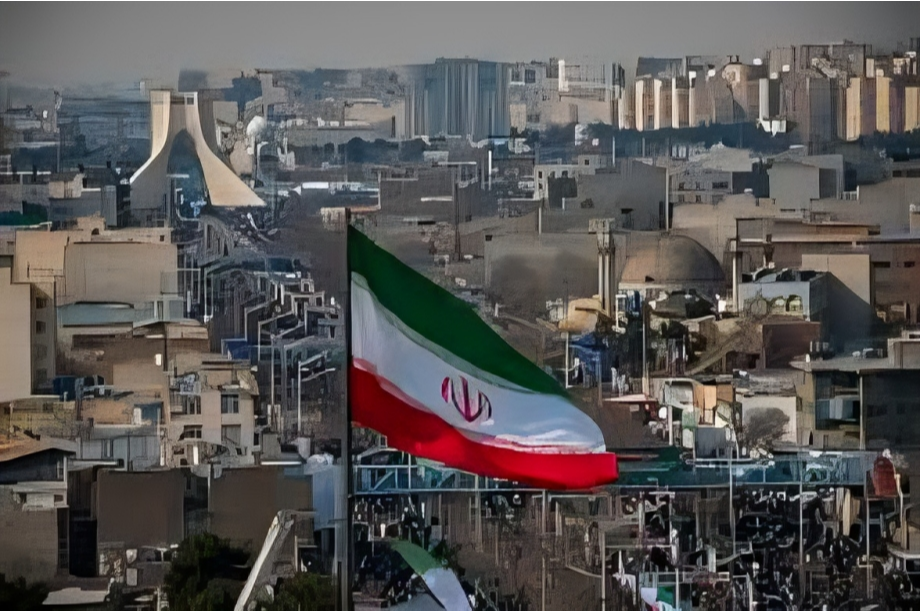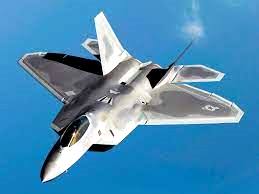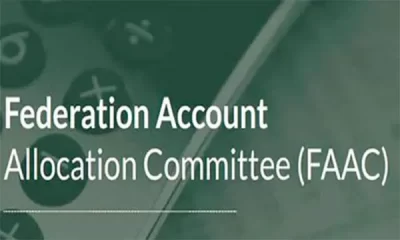Foreign News
Libyan leader Orders Probe Into Tripoli Clashes

Libyan President of the Presidency Council Mohamed Menfi has issued orders to start an investigation into the clashes that erupted in southern Tripoli between two security forces.
The orders also included an immediate cease-fire and the return of all fighting forces to their headquarters.
“The General Commander of the Military Staff must take all necessary measures immediately against the commanders of the fighting forces, and exercise all legal powers against them,” Menfi said in a statement.
“The Military Attorney General must immediately start investigation directly with commanders of those forces, including those who initiated the clashes, take all necessary legal measures against them, and provide us with any measures taken,” Menfi said.
He stressed the need for all security and military agencies to comply with orders and refrain from any unpermitted movements, warning that any violations are considered crimes punishable by law.
Clashes between two government security forces erupted on Thursday night near a military camp in southern Tripoli, with unknown casualties, a security source told Xinhua.
Local media showed footage of burned military vehicles in the camp.
The United Nations Support Mission in Libya on Friday expressed concern over the clashes, calling for an immediate cessation of hostilities and calling on all parties to exercise maximum restraint.
Libya has been suffering insecurity and chaos ever since the fall of its leader Muammar Gaddafi in 2011.
In spite of a ceasefire and the progress earlier this year towards a political solution to Libya’s crisis, there has been no movement towards integrating its myriad armed groups into a unified national military.
Libya is a leading oil producer and though it has been able to maintain output over the past 10 years, disputes have sometimes shut down exports, including for months last year.
The new fighting pitted the 444 Brigade against the Stabilisation Support Force, two of the main forces in Tripoli, a witness said.
It follows major clashes last month in the city of Zawiya, west of Tripoli, and smaller incidents of friction or clashes inside the capital including a gunfight this week at a state institution.
In eastern Libya, controlled by renegade military commander Khalifa Haftar’s Libyan National Army (LNA), there have also been shootings and other incidents of violence in recent months.
Libya has had little peace since the 2011 NATO-backed uprising that overthrew longtime ruler Muammar Gaddafi, and in 2014 it divided between the warring eastern and western factions.
However, they agreed to a ceasefire last year and a new unity government that both sides backed was installed in March to prepare for national elections in December, moves seen as the best chance for peace in years.
The Tripoli-based unity government has, however, struggled to unify state institutions or prepare for elections, with the eastern-based parliament rejecting its budget and failing to agree on a constitutional basis for a vote.
Wolfram Lacher, of the German think-tank SWP, said although there was the possibility of further escalation, a mediated solution was likely to resolve the fighting in the short term.
However, “similar clashes are bound to recur in Tripoli and elsewhere”, he added.
Meanwhile, Morocco’s foreign minister has called on the Libyan parties to arrange for presidential and legislative elections in a timely manner, adding that the country’s stability depends on it.
Fighting between rival armed forces poses challenge to the unity government as it struggles to conduct national elections.
Fighting broke out in Tripoli early on Friday between rival armed forces, witnesses said, the heaviest clashes in the Libyan capital since the conflict between eastern and western factions paused a year ago.
A resident of the Salah al-Din district in southern Tripoli said the shooting began at about 2:30am (00:30 GMT) and continued through the morning with medium and light weapons. There was no immediate report of casualties.
Conflict in Tripoli between the armed groups who vie to control both territory and state institutions would further undermine the prospect of December elections as part of a plan to end a decade of chaos, violence and division.
Despite a ceasefire and the progress earlier this year towards a political solution to Libya’s crisis, there has been no movement towards integrating its myriad armed groups into a unified national military.
Libya is a leading oil producer and though it has been able to maintain output over the past 10 years, disputes have sometimes shut down exports, including for months last year.
The new fighting pitted the 444 Brigade against the Stabilisation Support Force, two of the main forces in Tripoli, a witness said.
It follows major clashes last month in the city of Zawiya, west of Tripoli, and smaller incidents of friction or clashes inside the capital including a gunfight this week at a state institution.
In eastern Libya, controlled by renegade military commander Khalifa Haftar’s Libyan National Army (LNA), there have also been shootings and other incidents of violence in recent months.
Libya has had little peace since the 2011 NATO-backed uprising that overthrew longtime ruler Muammar Gaddafi, and in 2014 it divided between the warring eastern and western factions.
However, they agreed to a ceasefire last year and a new unity government that both sides backed was installed in March to prepare for national elections in December, moves seen as the best chance for peace in years.
The Tripoli-based unity government has, however, struggled to unify state institutions or prepare for elections, with the eastern-based parliament rejecting its budget and failing to agree on a constitutional basis for a vote.Wolfram Lacher, of the German think-tank SWP, said although there was the possibility of further escalation, a mediated solution was likely to resolve the fighting in the short term.
However, “similar clashes are bound to recur in Tripoli and elsewhere”, he added.
Meanwhile, Morocco’s foreign minister has called on the Libyan parties to arrange for presidential and legislative elections in a timely manner, adding that the country’s stability depends on it.
Nasser Bourita’s remarks came during a joint news conference with Libya’s Parliament Speaker Aguila Saleh on Thursday, following a meeting in the Moroccan capital, Rabat.
For his part, Saleh called on neighbouring countries and the international community to support Libya with holding elections on time, and said the situation in Libya would be worse if elections were to be postponed. (NAN)
Foreign News
Iran Publicly Executes Man for Murdering Family of Four

Iran has carried out a public execution, hanging a man convicted of murder in the southern province of Fars, Iranian media reported on Tuesday.
The man was sentenced to death for allegedly killing a woman and her three children during a robbery with his wife, according to the Fars news agency.
His wife also received a death sentence, which was expected to be carried out inside a prison.
The execution took place near the crime scene, reports said.
Public executions are rare in Iran.
Human rights groups have long criticised the country’s use of capital punishment, accusing the judiciary of employing executions to silence dissent.
No fewer than 1,000 people were executed in Iran in 2024, according to United Nations figures.
Foreign News
CAF Sanctions Kenya Again over Crowd Trouble

The Confederation of African Football (CAF) has sanctioned African Nations Championship (CHAN) co-host, Kenya, for the second time in as many weeks over security breaches.
In a statement made available on Monday evening, the continental governing body said that it has limited entry to the 48,000-seat Moi International Sports Centre.
It also said that, known as Kasarani Stadium, can accommodate 27,000 fans for Sunday’s Group A match between Kenya and Zambia.
CAF said only electronic ticket holders would be allowed into the stadium, with thermal tickets prohibited.
The governing body warned that Kenya’s matches could be relocated from Kasarani Stadium if organisers fail to prevent further breaches.
“We trust these measures will be applied swiftly to protect competition’s integrity, ensure fan safety, and uphold confidence in Kenya’s commitment to the tournament,” CAF said.
The sanctions follow incidents on Aug. 10 when Kenya defeated two-time winner Morocco 1-0 in spite of playing the entire second half with 10 men.
The win put Kenya top of Group A with seven points.
The debutants would reach the quarterfinals with at least a draw against winless Zambia.
Last week, Kenya’s football federation was fined nearly 20,000 U.S. dollars for security lapses during the team’s 1-0 win over DR Congo in the tournament opener on Aug. 3.
In the latest case, CAF cited major lapses, including stadium gates and restricted service areas being overrun by ticketless spectators and holders of government-distributed physical tickets.
It also accused security personnel of losing control at exit points and allowing breaches of the perimeter fence that enabled thousands of ticketless fans to enter.
CAF had expressed alarm over the use of tear gas and flash grenades, reports of live ammunition fired near spectators and staff, and violent incidents such as stone-throwing at security personnel.
It also cited unsafe vehicle movement in spectator areas, inadequate police response, and the lack of medical incident reports in spite of injuries being reported.
Organisers were further criticised for insufficient communication tools and the absence of CCTV coverage at critical entry points.
Foreign News
Madonna Urges Pope Leo to Visit Gaza

Pop icon Madonna has made an appeal to Pope Leo XIV, urging him to visit the blockaded Gaza Strip amid a starvation crisis that has sparked international outrage.
“You are the only one of us that cannot be denied entry,” the U.S. singer wrote on social media platform X late on Monday.
“We need the humanitarian gates to be fully opened to save these innocent children.
“There is no more time,” she added.
Marking the 25th birthday of her son Rocco Ritchie on Monday, Madonna also announced plans to donate to humanitarian organisations working in Gaza.
“I feel the best gift I can give to him as a Mother is to ask everyone to do what they can to help save the innocent children caught in the crossfire in Gaza,” she wrote.
A United Nations (UN) agency said late last week that “acute malnutrition among children in Gaza has reached the highest levels.”
In July alone, nearly 12,000 children lower than five in age were identified as acutely malnourished, with another 2,500 found to suffer from severe acute malnutrition.
According to the UN Office for the Coordination of Humanitarian Affairs (OCHA), this is the most life-threatening form.
Israel controls access roads to Gaza and has sealed off the coastal area.
Very little aid got into Gaza from March through May, when Israel began allowing in deliveries using a controversial private system that bypasses traditional UN agencies.
Under pressure from allies, Israel recently began permitting larger convoys into the territory, as aid airdrops take place overhead.
On Sunday, Irish rock band U2 issued a stinging critique of the Israeli government’s actions.
“We know Hamas are using starvation as a weapon in the war, but now so too is Israel and I feel revulsion for the moral failure,” frontman Bono wrote.





















